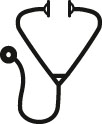Abstract

Background: Blinatumomab, a bispecific anti-CD19/CD3 antibody has resulted in significantly improved outcomes in patients (pts) with r/r B-ALL compared to conventional chemotherapy. However, over half of treated pts fail to respond (CR/CRh/PR 44%), and majority of responders eventually relapse without consolidation therapy. There is an unmet need to design novel strategies to improve efficacy. Upregulation of PD-L1 on leukemic blasts and PD-1 on T cells has been shown to associate with resistance to blinatumomab in preclinical and clinical studies. Therefore, blockade of the PD-1 pathway represents a reasonable strategy to augment blinatumomab efficacy. Here we set out to test the combination of pembrolizumab and blinatumomab in a single arm, phase 1/2 trial (NCT03512405).
Methods: Pts [≥18 years old (yo); ECOG <1] with CD19+ R/R B-ALL, received standard blinatumomab 9 mcg/day on days 1-7, 28 mcg/day on days 8-28 in cycle 1, and on days 1-28 in subsequent cycles. Pembrolizumab 200mg was given on day 15 (schedule A) or day 22(schedule B) in cycle 1, and on days 1 and 22 in subsequent cycles. Cycle length was 42 days except 35 days for cycle 1 in schedule A. The study completed the schedule A phase 1 portion with primary objectives of safety, tolerability and proceeded with recommended phase 2 dose (RP2D) using the "3+3” design.
Results: As of June 15, 2022, 7 pts were enrolled to phase 1 with one unevaluable, and 8 patients to phase 2. All received schedule A dosing. Fourteen evaluable pts received a median of 2 (1-6) cycles of treatment. At baseline, the median age was 53 yr (24-76) with median 2 (1-3) prior lines of regimens, and median 62% (10-95) BM blasts. All except one patient accrued were poor risk. In cycle 1, 64% experienced cytokine release syndrome (CRS) with 1 gr 3 CRS and no gr 4. All CRS except 1 started prior to the day 15 dose of pembrolizumab. Neurologic toxicities were all reversible with only 1 pt with ≥ gr3 AE. All-non-hematologic gr3 toxicities were reversible. No dose limiting toxicity, ≥ gr4 non-hematologic toxicity, or treatment related deaths were seen. The complete remission (CR/CRi) rate is 79% (11/14). Ten of 14 evaluable pts (71%) achieved flow cytometry MRD negative CR/CRi after a median of 1(1-2) cycle. 6/8 patients with ≥50% blast achieved CR/CRi. One patient had >83% blasts after cycle 1 and achieved CR after cycle 2, supporting the positive impact of pembrolizumab. Seven pts in CR received allogeneic transplant (alloHCT) with post-transplant cyclophosphamide (PTCy) as graft versus host disease (GVHD) prophylaxis. Only 1 patient had ≥gr3 acute GVHD which resolved with treatment. With a median follow-up of 9.6 (1.8- 34) months, 6 CRs are ongoing (5 post-transplant) and 10 of 14 evaluable pts are still alive at the data cut-off. PD-1 detection decreased among both responders and non-responders after pembrolizumab administration. Responders after cycle 1 had higher CD8+ T cells which increased further following pembrolizumab administration. Correlative studies are ongoing.
Conclusions: The combination of pembrolizumab and blinatumomab in phase 1/2 of this study in pts with r/r B-ALL was deemed safe with a manageable side effect profile. Encouraging anti-leukemic activity has been seen in the majority of treated patients (CR+CRi rate of 79%) and most CR are MRD negative, supporting the rational combination of these 2 agents. The phase 2 portion of the trial is continuing to recruit patients.
Disclosures
Akhtari:Karyopharm: Speakers Bureau; Incyte: Speakers Bureau; Takeda: Speakers Bureau; Secura Bio: Speakers Bureau; MorPhosys: Speakers Bureau; PharmaEssentia: Speakers Bureau; CTI: Speakers Bureau; Jazz Pharma: Speakers Bureau. Salhotra:Kadmon: Other: Advisory board meeting ; BMS: Research Funding; Orca Bio: Research Funding. Mei:Novartis: Honoraria; CTI: Honoraria; Incyte/Morphosys: Research Funding, Speakers Bureau; EUSA: Honoraria; BMS: Research Funding; Beigene: Research Funding. Koller:Treadwell Therapeutics: Other: Safety Review Committee; Takeda: Speakers Bureau; Novartis: Consultancy, Membership on an entity's Board of Directors or advisory committees, Speakers Bureau. Pullarkat:Amgen, Dova, and Novartis: Consultancy, Other: Advisory Board Member; AbbVie, Amgen, Genentech, Jazz Pharmaceuticals, Novartis, Pfizer, and Servier: Membership on an entity's Board of Directors or advisory committees, Speakers Bureau. Aldoss:Agios: Consultancy, Honoraria; Jazz Pharmaceuticals: Honoraria, Speakers Bureau; Kite: Consultancy; Autolus Limited: Consultancy; Amgen: Consultancy; AbbVie: Consultancy, Research Funding. Smith:Johnson and Johnson: Current equity holder in publicly-traded company. Stein:Amgen: Honoraria. Marcucci:Lynx: Membership on an entity's Board of Directors or advisory committees; Abbvie: Other: Speaker and advisory scientific board meetings. Budde:Amgen: Research Funding; AstraZeneca: Research Funding; Gilead: Membership on an entity's Board of Directors or advisory committees; Roche: Membership on an entity's Board of Directors or advisory committees; Mustang Therapeutics: Research Funding; Merck: Research Funding.
Author notes
 This icon denotes a clinically relevant abstract
This icon denotes a clinically relevant abstract
Asterisk with author names denotes non-ASH members.

